Greece or Spain: which holiday heaven should you visit this summer?
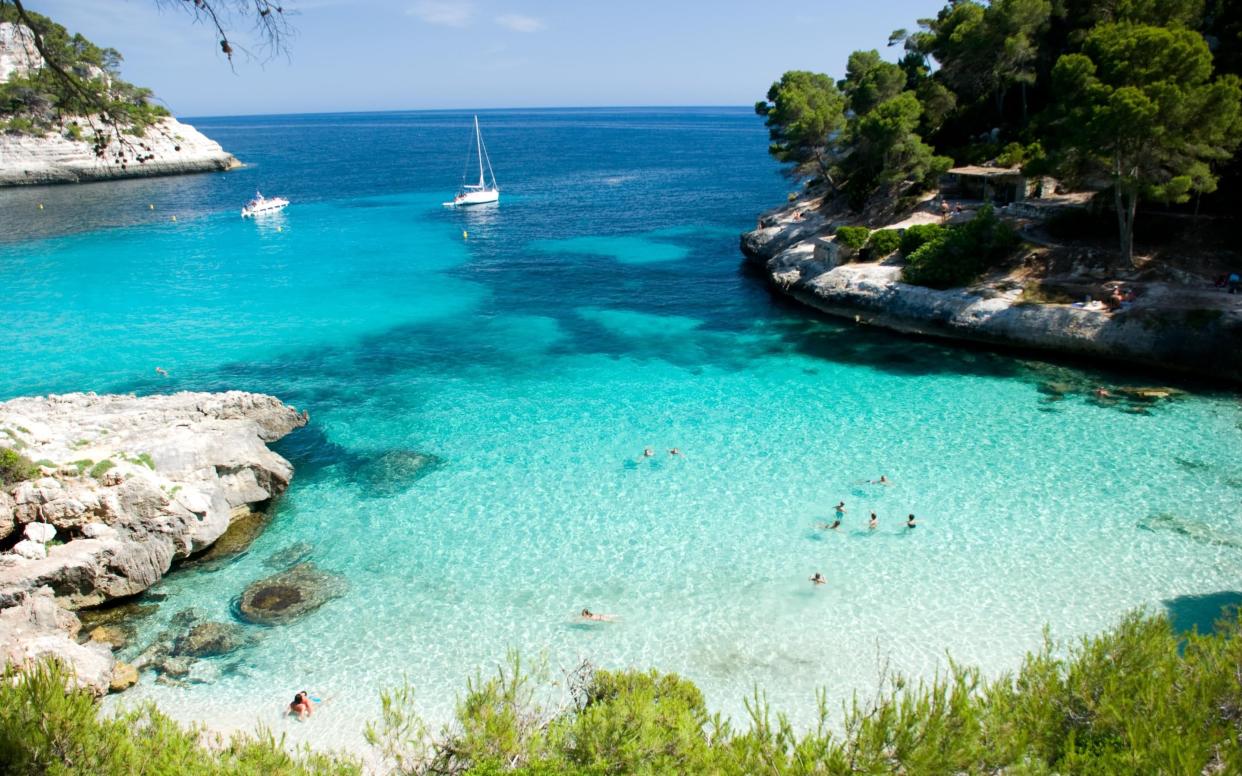
The first flight I ever took was to Mallorca, aged 13. We awoke to a golden morning on the north-east coast, with steps down to a cove of fine sand and limpid, turquoise shallows, bath-warm. They couldn’t get us out of the water, our parents – after a lifetime of the toe-numbing Atlantic we had never known anything like it.
My sister and I found other children and we roamed the beaches and pine forests in a pack, hungry for adventure and first love. It was heaven. If there was a place on earth to rival Spain for summer holidays, I couldn’t imagine it. But, as it turned out, there was.
Although I don’t have a single photograph of my first holiday to Greece, a few years later the memory remains pin-sharp: white heat and vibrant Aegean; domed whitewashed churches and blue-shuttered fishing villages; the pale stone remains of its great civilisation framing an azure sky, where we partied amid the antiquity.
Spain has shimmering costas: miles of sand and sun loungers along the Med and Andalucia’s wilder Atlantic. Greece has drama in the green-forested fingers of its Peloponnese, cliffs plunging down to pebble shores.
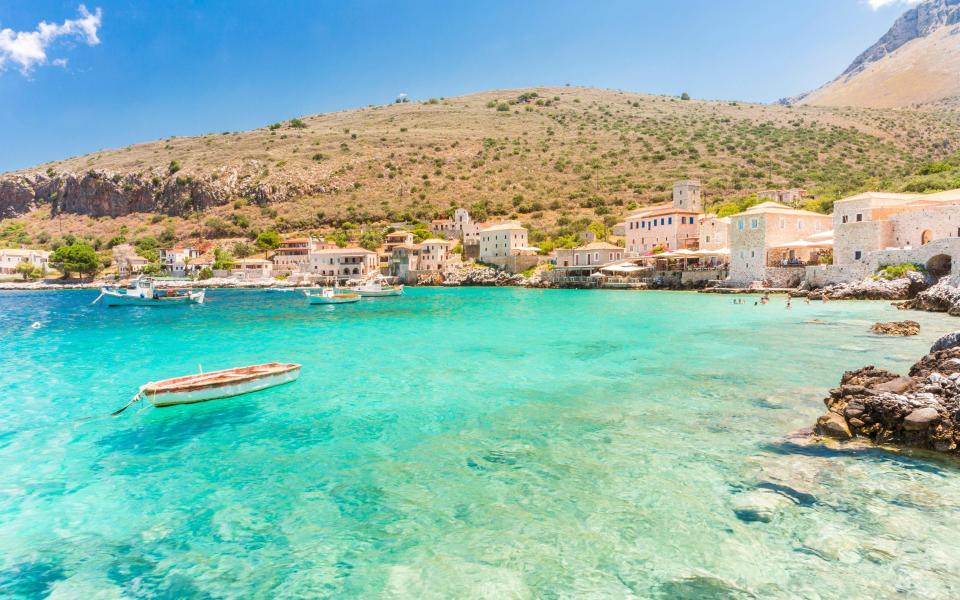
Spain has siestas and fiestas, passion and baroque splendour in its art and architecture, its music and dancing; spice and saffron in its flavourful full-on flavour tapas.
Greece, despite the weight of all that history, has a light-as-air simplicity, from its clean, fresh seafood and salads to its carefree way of life that liberates British holidaymakers into Shirley Valentines, septuagenarian National Trust members pootling around its herb-scented isles on mopeds, limber from so much olive oil and sunshine, while our children burst out of their shells to go leaping off jetties with the locals.
So then, which will it be? Which of these two many-splendoured countries, when they open their sun-kissed arms to British travellers again, will we run to first this summer?
After such a long absence, it’s a happy dilemma. Let our experts help you decide, as they fight it out in the battle for Britons.
Why you should choose Spain this summer
By Annie Bennett, Telegraph Travel expert
For millions – yes millions – of us, it is not about if but when we will return to Spain this year. There is simply no question about that. It is just a matter of where to go first when the situation both here and there has improved sufficiently and safety measures are in place – whether this means vaccine certificates, testing, or both. It is looking increasingly likely that some sort of digital health app that shows vaccine status will be in a trial phase by May or June in key destinations such as the Balearic Islands, before being rolled out across the country.
While some have already taken the plunge and booked their summer holiday in Spain, a lot of people are happy just to plan for now, drawing up lists of dream trips to beaches, mountains and cities. Unsurprisingly, something at the top of quite a few lists is the simple pleasure of sitting on a terrace with a glass of rosé or a beer, gazing out across the Mediterranean or installed at a table in a village in the hills.
For anyone feeling that the last year has had much of the colour drained from it, the sheer exuberance of life in Spain is more appealing than ever. High on my own list is a tapas crawl involving lots of fresh tuna and sherry in the hilltop white town of Vejer de la Frontera in Cadiz province after a long day on the beach on the Costa de la Luz. Who’s with me?
Beaches
Do you like a beach holiday with so much to do that no one could possibly whine about being bored? Or do you prefer stretches of sand with no facilities whatsoever and no problems with social distancing? Not that you have to worry about that anyway as popular resorts such as Benidorm are marking out safe spaces again on their beaches this summer.
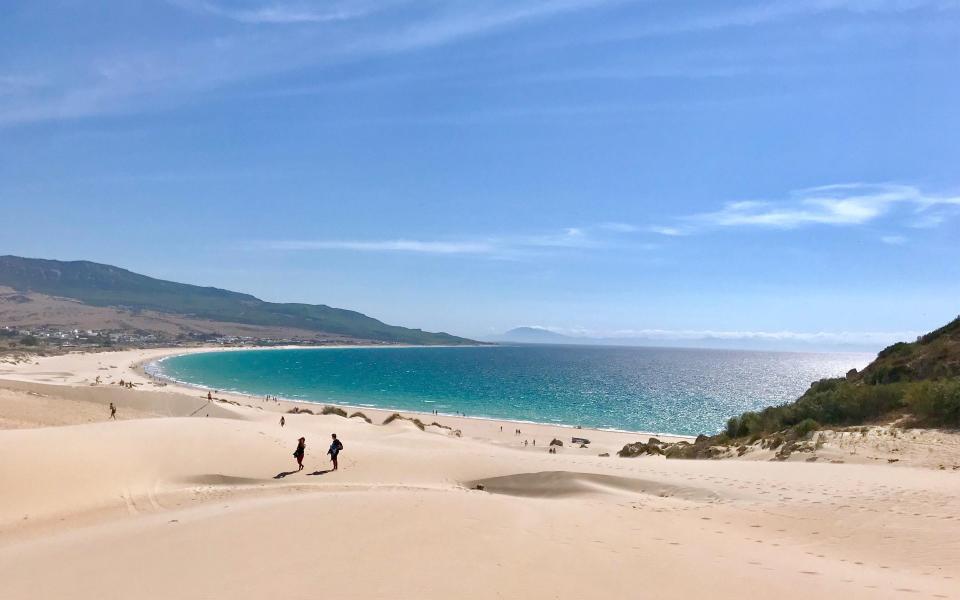
The splendid Costa de la Luz on the Atlantic coast of Andalucia is more or less one long beach that stretches from boho Tarifa to the Portuguese border, with a string of low-key resorts.
If your plans for Devon or Cornwall this year were thwarted by lack of availability, have a look at the Rías Altas in Galicia, where the beaches are remarkably similar – and you can take the ferry followed by a scenic drive along the north coast.
Food
We’ll just start with jamón ibérico, shall we? Think about it, glistening in swirls on the plate, then melting in your mouth. And some prawns, all plump and pink, just off the boat in Palamós on the Costa Brava. Or let’s go on a seafood pilgrimage to the Rías Baixas in Galicia, devouring oysters, mussels, razor clams and spider crab with plenty of Albariño wine. We could continue along the coast of Asturias, trying a few of the artisan cheeses with a splosh of cider.
And then we would just toddle along to San Sebastián, undoubtedly one of the foodiest places in the world. A few tapas bars in Seville? Difficult to surpass – for both the flavour factor and the fun. A paella on the beach in Valencia, Malaga or Menorca with your feet in the sand and a beer in your hand? Bliss. Holidays in Spain are all about the food, you just do all the other stuff in between.
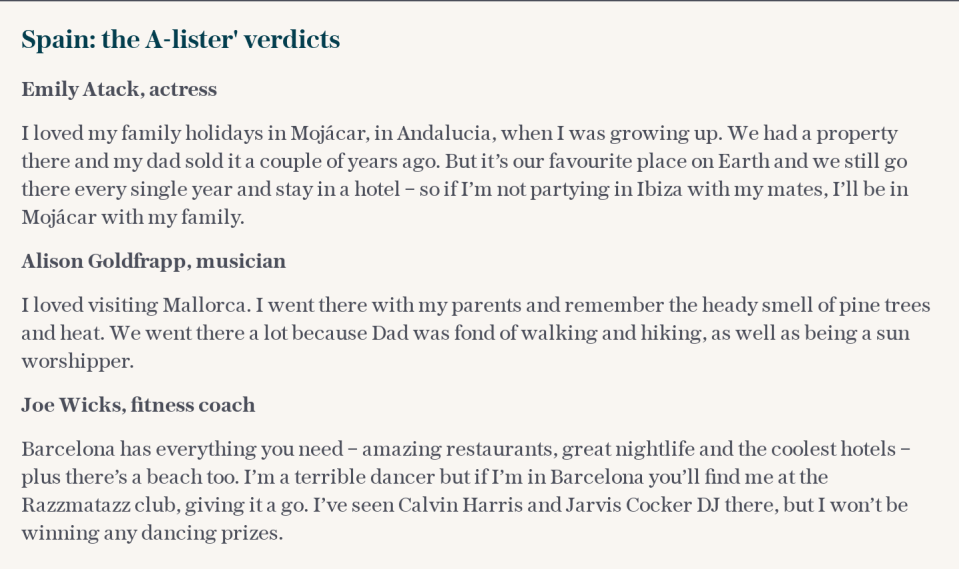
Drink
It’s never too early to start drinking in Spain and it is perfectly acceptable to order a carajillo – coffee with a slug of brandy – with your breakfast before starting on the sherry or vermouth around noon.
While I love Rioja, I would urge you to try some of Spain’s other wines. With nearly 100 wine-producing areas with Protected Designation of Origin, there is likely to be something interesting being made just a stone’s throw from your holiday resort – be that the Costa Daurada, Costa Blanca and Costa del Sol, or any of the Balearic Islands and several of the Canaries.
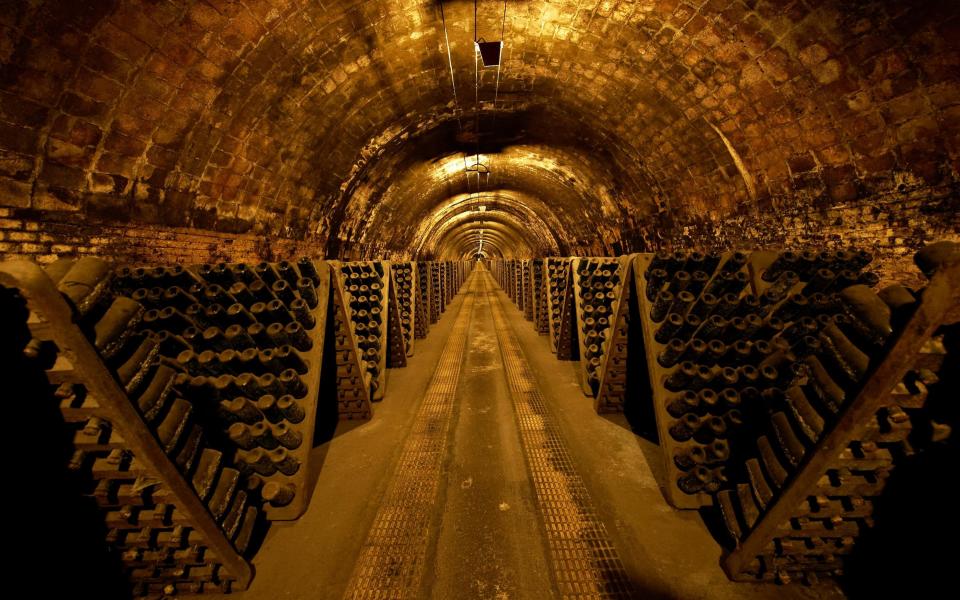
Feel free to share a jug of sangria – providing you are on a beach, by a pool or having a paella or a barbecue in the countryside – but you might well prefer tinto de verano, which is just red wine, ice and lemonade, and much nicer than it sounds. In Andalucia, also give rebujito a whirl, with fino sherry in the mix instead of red wine. And I don’t think I need to explain the joy of Spanish gin and tonics to anyone. If the thought of putting one of those goldfish-bowl glasses to your lips doesn’t get you booking a flight, I don’t know what will.
Culture
It doesn’t matter if your knowledge of Moorish heritage in Spain is on the scant side when you first visit the magnificent Alhambra palace in Granada. Just wallow in the voluptuous visual onslaught and read up on it later. Then you’ll realise you really should have started with the mesmeric Mezquita in Cordoba before being knocked out by the sensual delights of Seville. The next thing you know, you’ll be booking a cultural highlights of Andalucia tour.
You might want to sink into Gaudí’s extraordinary world in Barcelona, or goggle at Dalí’s creations up the Catalan coast in Figueres and Cadaques – both of which dovetail rather smoothly with lying on beaches.
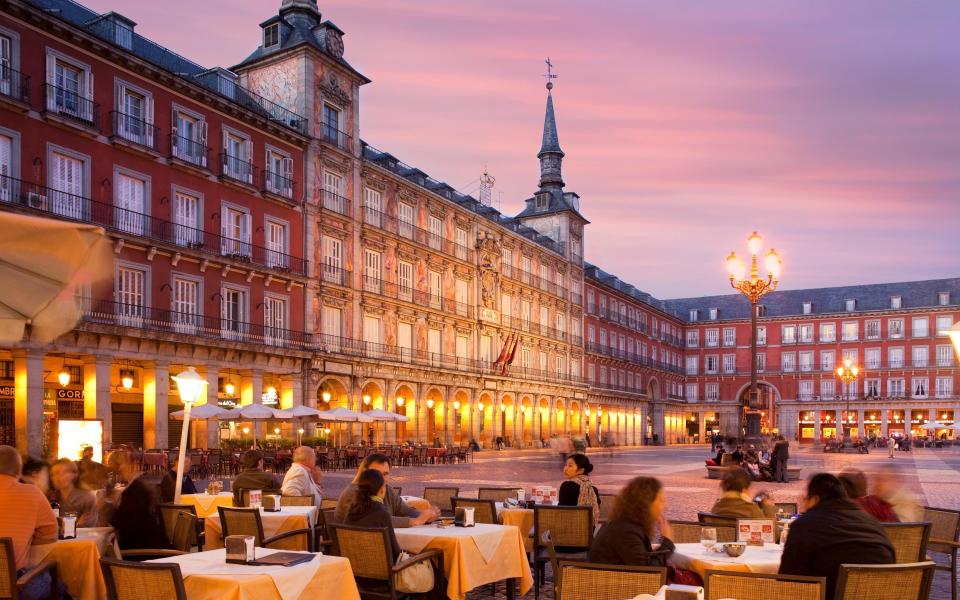
In Madrid, the magnificent Prado, Thyssen-Bornemisza and Reina Sofía museums already have systems in place to make visiting safe, but make sure you book ahead online and don’t try to do them all at once. You’ll just have to go back to the Spanish capital on a regular basis. I’m sure you won’t need any persuading.
Activities
How active do you want to get? A bit of gentle exercise, a challenge or an extreme experience? Cycle paths cross the flower-filled countryside bordering the Costa Brava, where you can explore medieval villages along the way and stop off at tiny coves to snorkel and swim. Mallorca is particularly good for this sort of combination too, with flat routes suitable for leisurely trundlers and hairpin bends in the mountains for serious cyclists.
In the Canaries, astronomy fans should head for La Palma, where there is very little light pollution and you can observe the night sky from viewing points at strategic spots all over the island. Both here and on neighbouring La Gomera you can hike through magical subtropical laurel forests and dramatic volcanic landscapes.
In northern Spain, venture inland from the wild beaches to the Picos de Europa, Spain’s oldest national park, to climb the limestone massifs or canoe down the Deva river. You might see a golden eagle, a wolf or even a brown bear – Spain is nothing if not surprising.
Islands
I am not disputing that the Greek islands are spectacularly gorgeous, but the Mediterranean is equally turquoise in the Balearics. Menorca would probably win for idyllic coves that lend themselves to long days spent diving and paddleboarding, while Formentera has perhaps the most blissed-out beaches and is often compared to the Caribbean – as, perhaps surprisingly, are the Cíes Islands in Galicia, where Rodas beach is a perfect crescent of glittering white sand.
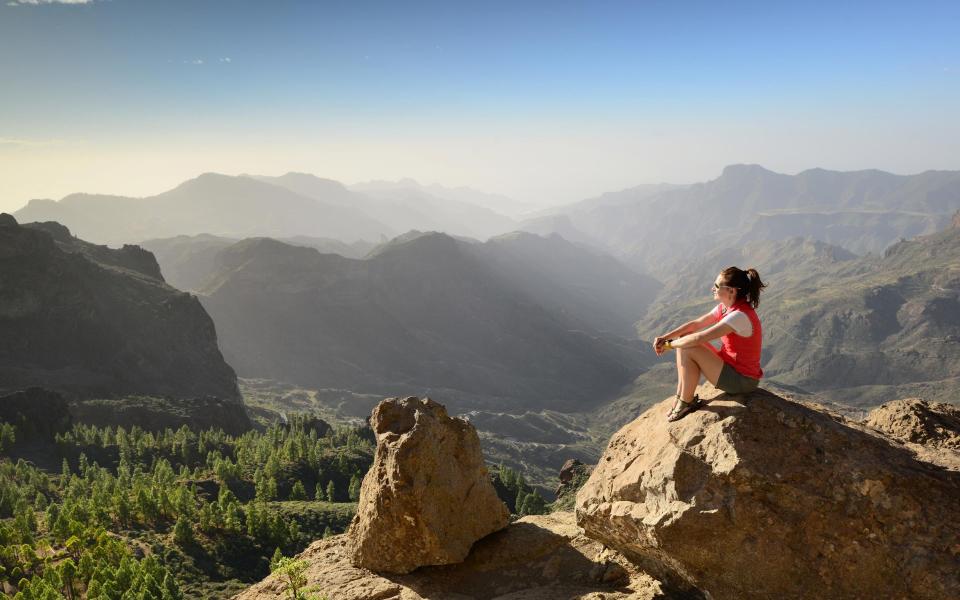
The Canaries, meanwhile, are nothing like as developed as you might think. Lanzarote only has a few resorts and is strengthening its position as a sustainable destination with holidays based in rural areas and the emphasis on sports both in and out of the water. Las Palmas, the capital of Gran Canaria, has become a bit of a hub for digital nomads, who hang out in the coworking spaces in the city before surfing and swimming on Las Canteras beach.
For anyone who has realised in the last year that they can work from anywhere, both the Canaries and the Balearics are feasible options, with good infrastructure and frequent flights.
Hotels
Spain has really upped its game on the hotel front in the last decade or so, with smart places to stay irrespective of budget. The hip hostel concept has really taken off in the major cities, as have places with sleek design but no outdated frills, such as Room Mate hotels (room-matehotels.com), which are expanding to Mallorca with the Room Mate Olivia and to Ibiza with the Room Mate Ángel, both opening in May.
In resorts, meanwhile, tired old hotels are being revamped to create five-star properties that are transforming what you can expect from a beach holiday, like the Ikos Andalusia on the Costa del Sol (ikosresorts.com), which is opening in April.
Spain must be one of the best countries for boutique hotels too, with gorgeous little places dotted throughout the country, whether urban or rural. Seville and Palma in particular are chock-a-block with romantic boltholes in traditional buildings. Only You (onlyyouhotels.com), which currently has two hotels in Madrid, is opening later this year in both Valencia and Malaga.
To immerse yourself in Spanish culture without even trying, just spend a week or two staying in a few of the 98 sumptuously restored castles, palaces and monasteries that are now part of the state-owned parador group (parador.es).
Families
Multigenerational holidays are nothing new in Spain; it is just the norm to spend the summer with your extended family, whether in a sprawling villa in the Mallorcan countryside, a traditional granite house in Galicia or an apartment right by the beach on the Costa Blanca.
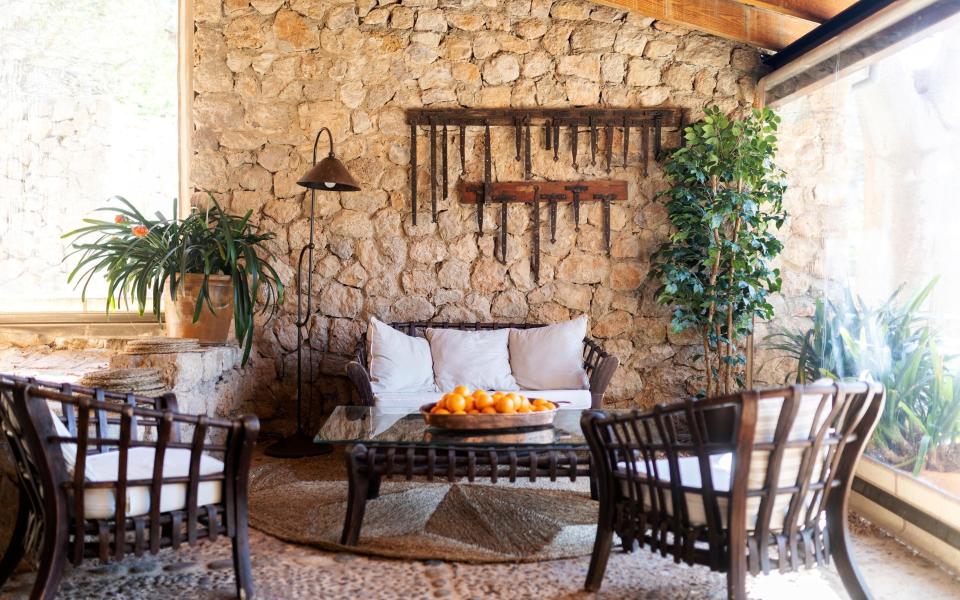
Follow their example and set up camp on the beach in the morning with a stack of cool boxes packed with food and drinks. Ibiza is increasingly catering for young families, with chic hotels that offer daytime hedonism at beach clubs, yoga sessions and watersports as well as kids’ clubs.
The great thing about Spain is that children are welcome just about everywhere, so you might even be able to get everyone to spend all day together. Don’t be surprised if you end up dancing in the streets at a village fiesta at midnight.
Couples
Whether you want to spend every waking minute together or test your relationship by trying a new sport together – whitewater rafting, canyoning or kitesurfing perhaps – there is no shortage of options in Spain. For a really romantic break, you could stay in a cottage in the Redes biosphere reserve in Asturias in the north and explore the beech forests, limestone gorges, waterfalls and rivers – with lots of spots for wild swimming.
For a summer city break, elegant Santander in Cantabria is flanked by divine beaches and has superb shops and restaurants. Or just nip off to Malaga at a moment’s notice and mooch around the Soho neighbourhood before a lazy lunch by the beach and cocktails at a rooftop bar as the sun goes down.
Local welcome
Spain is, of course, desperate to get visitors from the UK back to the country as so many people are dependent on the 18 million tourists who usually visit each year. Losing even part of the 2021 summer season would be the final nail in the coffin for a lot of businesses.
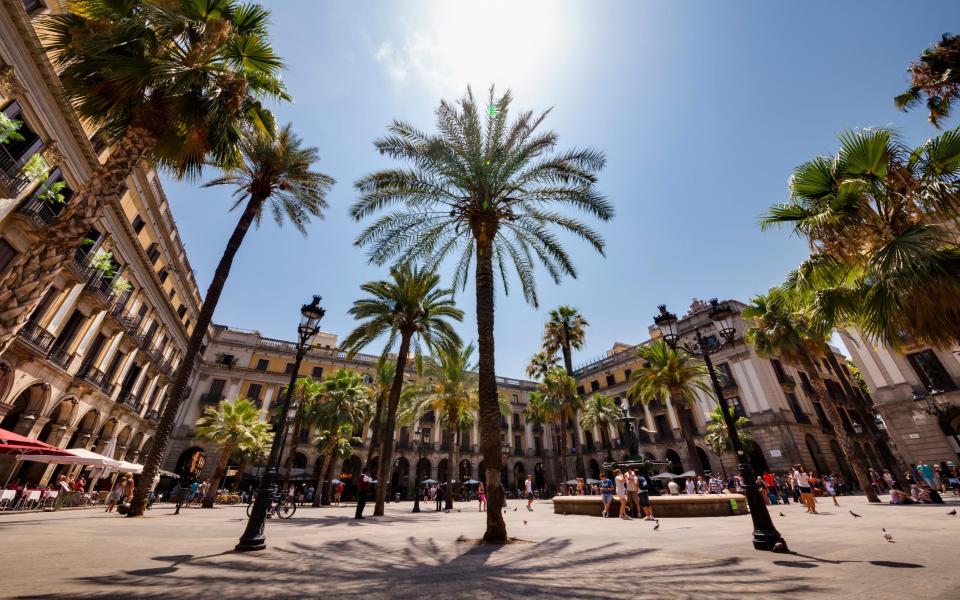
Our reputation is not exactly pristine of course, after decades of debauchery in a handful of resorts in Mallorca, Ibiza and the Costas. And that’s just me. But there is certainly a school of thought that Spain should seize this chance to reset its tourism model and quietly discard some of the outdated aspects – the industry has been trying for years to phase out cheap booze-based breaks so this could be an unexpected bonus of the pandemic. Although I’ll believe that when I see it.
Visitors from the UK are a growing market for gastronomic tourism and as soon as we have firm dates for travel I’m sure people will be booking tables at their favourite restaurants in Madrid, Barcelona and San Sebastián, both with Michelin stars and without.
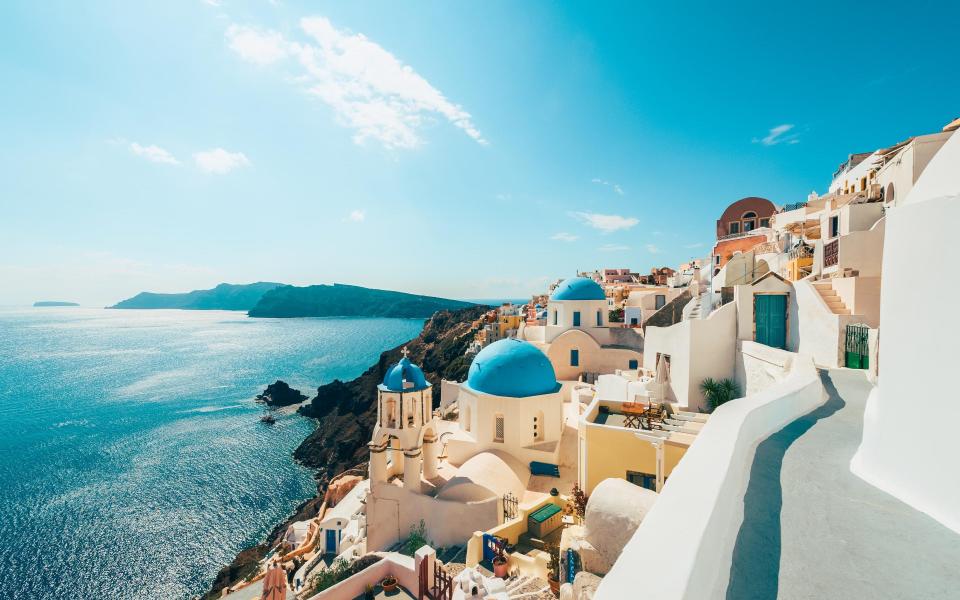
Why you should choose Greece this summer
By Heidi Fuller-Love, Telegraph Travel expert
Birthplace of democracy, home of the Mediterranean diet and backdrop for countless feel-good movies, Greece’s seascapes are among the best in the world. Forget those crowded Spanish costas; whether you like endless swathes of golden sand, pristine pebbled seascapes, or secret coves where you can sunbathe without seeing another soul, in Greece there’s a beach for every taste.
With fifty centuries of storied history, this magical land renowned for its hospitality is also deeply rooted in antiquity. The Acropolis and the sacred island of Delos might be Greece’s two archaeological beacons, but if you head for the megalo nisi, or big island, as Crete is known to Greeks, you can roam among the ruins of ancient Minoan Palaces. Alternatively, make a beeline for Rhodes to stroll in cobbled streets where the Knights Templars once roamed or take a ferry over to Kos, home to The Asklepieion, a sacred healing centre which has been in use since ancient times.
Health is high on the menu, too, in the home of the Mediterranean Diet. Tapas might make great finger food, but when it comes to healthy snacking, Greek meze – ranging from mineral-rich foraged greens and high-fibre Cretan dakos rusks to brine-fresh calamari and protein-rich snails – win hands down. Just ask the inhabitants of Blue Zone island Ikaria whose residents are renowned for their longevity. So this year forget paella and sangria, say bye bye to Benidorm and baking on overcrowded beaches and make Greece your choice for a healthy and happy summer odyssey.
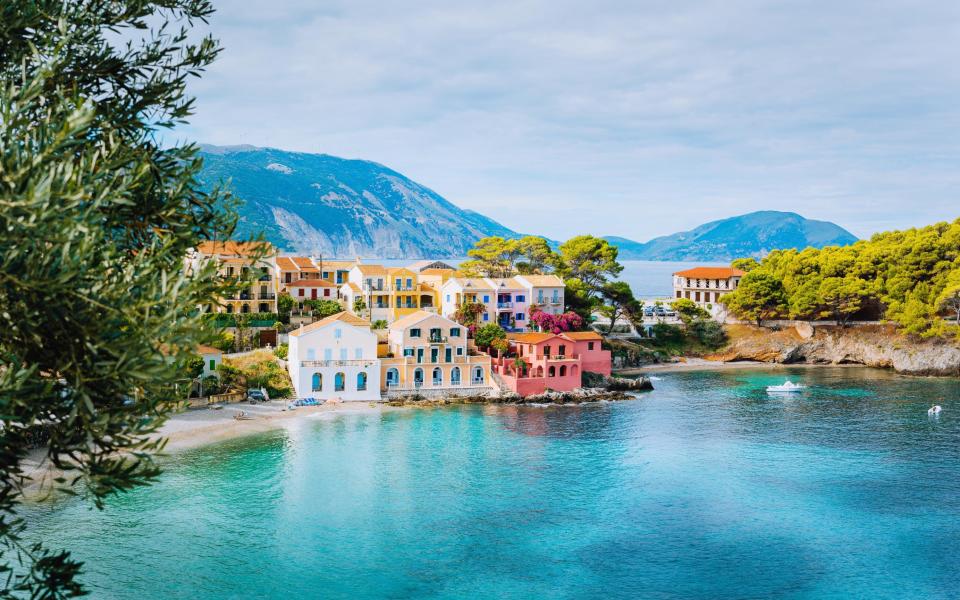
Beaches
From dramatic cliff-hemmed beaches like Zante’s much-instagrammed Shipwreck beach, to isolated coves such as Milos’s Kleftiko Bay which can only be reached by boat, Greece has some of the world’s best bathing spots.
On Crete the powder-pink sands of Elafonissi, near Chania and the glass-clear waters of Balos Lagoon which are reached by boat from Kissamos, are justly famed. But if you want to get off the beaten track, head for Vai on Crete’s eastern tip where you can laze on a gold sand beach surrounded by Europe’s only palm forest.
Younger Robinson Crusoes will love bathing from Samos’s shell-strewn Potami beach, but party animals will probably prefer cosmopolitan Psarou beach on Mykonos, where some of the world’s best DJs come to perform in summer. The mainland also has some superb strips of sand, including Sithonia, on Halkidiki’s three-pronged peninsula an hour’s drive from Thessaloniki, whose pristine waters framed by Mount Athos are home to rare monk seals.
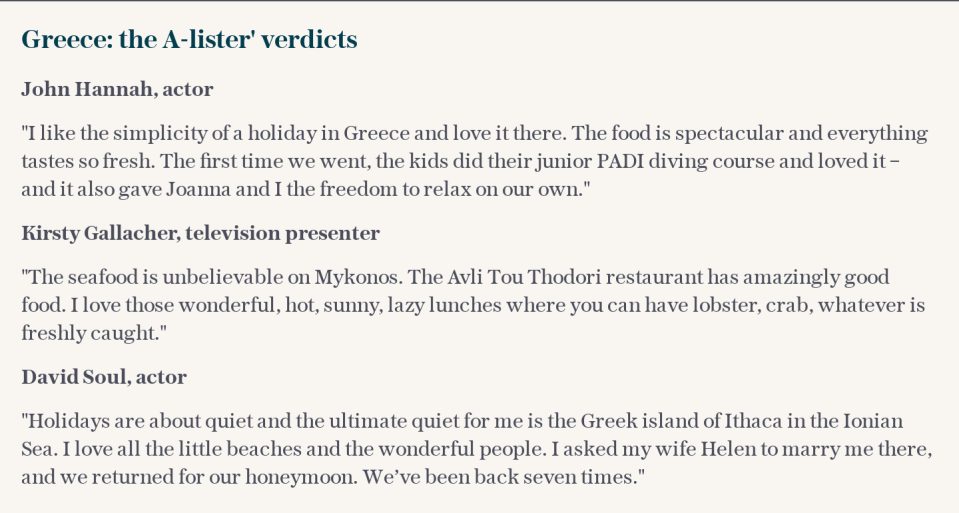
Food
Greece can’t be beaten when it comes to good, healthy food. Doused in the rich golden olive oil that regularly features on “world’s best” lists, each region has its own speciality.
With its bijou opera house inspired by La Scala and beautifully conserved Venetian architecture in old town Ermoupolis, Syros in the Cyclades is renowned for spicy San Mihalis cheese, cured pork lountza and other succulent culinary treats, while sister island Sifnos’s celebrated food scene is a magnet for food lovers who come here to fill up on mastello lamb marinated in red wine, chickpea croquettes baked in earthenware crocks and other unique dishes. Why not follow the latest Greek food trend and book into a gourmet hotel, such as Ergon House in Athens or Legacy Gastro suites in Heraklion, where the country’s luscious food specialities are available on tap.
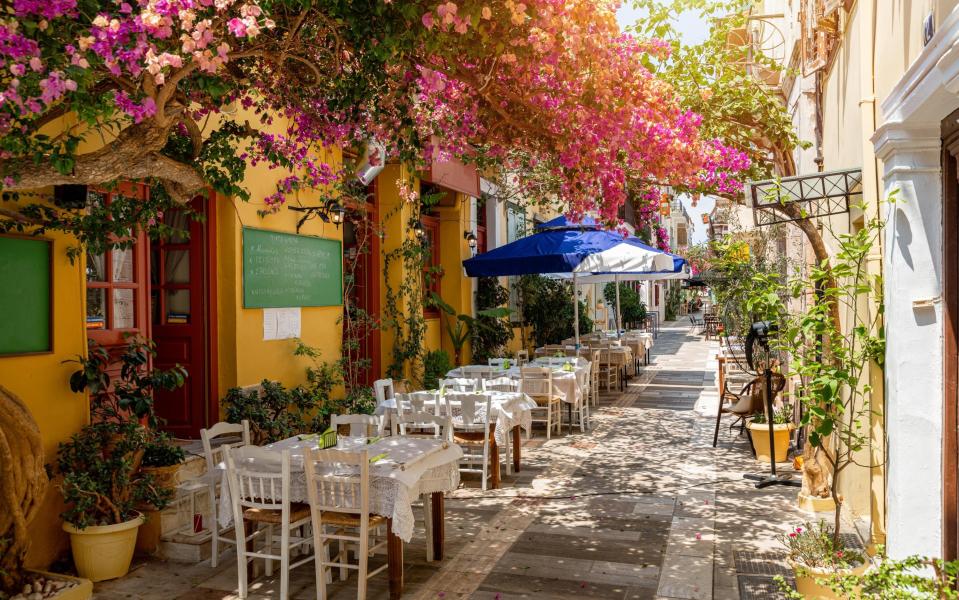
Drink
With inventive new mixologists and a raft of cool new winemakers, the Greek drinks scene has never been so exciting. Once the turpentine-flavoured backdrop to every Greek holiday, retsina, accidentally invented back in 2000 BC when ancient Greeks used resin to seal their porous amphorae, is being reinvented with spectacular results.
Try some at new brew bar Oinoscent, in downtown Athens. If you prefer your retsina old-style, make a beeline for Diporto in the city’s central food market where it’s served straight from the barrel.
Traditional drinks like grape-based raki and Chios island’s unique bubblegum-like mastixa are also getting a big makeover, as mixologists create sapid new cocktails with local-specific flavours. Order the Aegean Negroni made with Crete’s endemic dittany at The Clumsies in Athens, which regularly features in the world’s best bars list, or try some of the cool cocktails at new Zante watering hole The Cotton Club Zakynthos, which is a spin-off of the celebrated Ibiza club.
Culture
From Olympia, cradle of the Olympic Games, to religious sites such as the mediaeval Meteora monastery or the palace of Agamemnon at Mycenae, you will find ancient relics almost everywhere in Greece.
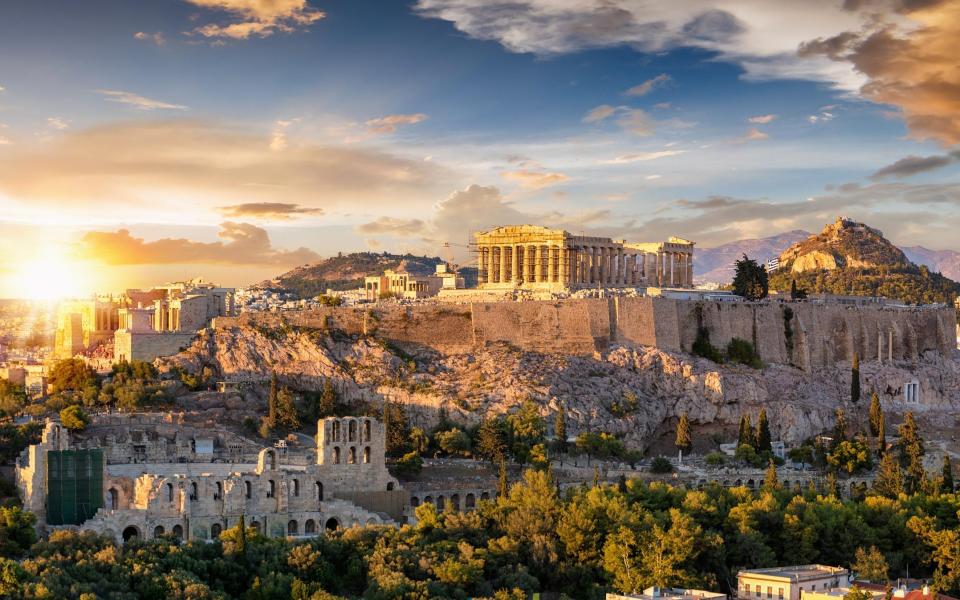
There’s no thrill to match climbing to see the Parthenon, via Plaka’s village-like labyrinth of lanes at sunset, but if you linger in the capital to visit exciting new cultural venues such as the B&E Goulandris Foundation’s museum of modern art and the quirky new Museum of Ancient Greek Technology, you will discover that there is much more to Athens than its iconic temple.
Away from the mainland, Crete is the home of the Minotaur and promises fascinating Minoan sites, including Europe’s oldest city at Knossos.
To explore the country’s more recent cultural past, head for Thessaloniki where the rich blend of Turkish, Jewish and Balkan influences in architecture, food and customs testifies to the Macedonian capital’s pivotal location at the crossroads between East and West
Activities
With more than 15,000 kilometres of coastline and some 6,000 islands surrounded by glittering seas, Greece is, understandably, a magnet for water sports fans.
What could me more thrilling than sailing out on a catamaran to explore Santorini’s spectacular caldera, swimming in Milos’s mineral-rich hot springs or donning a wetsuit to explore world-class dive sites, including the remains of Titanic’s sister ship HMS Britannic, which sank near the tiny island of Kea in 1916?
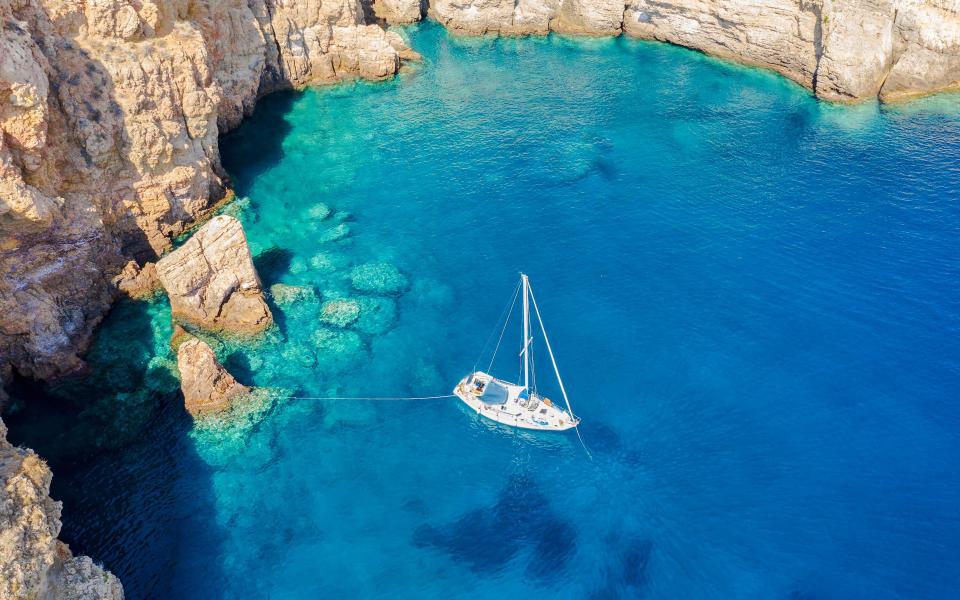
In recent years there has been a heightened focus on sustainable tourism, too, so you can expect to find plenty of new hiking trails in Greece this summer. This includes Crete’s winding, but clearly waymarked, E4 trail which leads from the Minoan Palace of Zakros in the east to the lively seaside resort of Kastelli-Kissamos in the west, via rugged wild-thyme-scented countryside dotted with remote hamlets.
Islands
Spain might have a massive coastline, but with 227 inhabited islands and countless deserted ones that are perfect for daytripping, Greece definitely steals the show.
Touted by Tui as this year’s most popular destination for sun-starved Britons, family-friendly Crete, with its lofty mountains, soft sand beaches, traditional kafeneio and buzzing nightlife, has something for everyone.
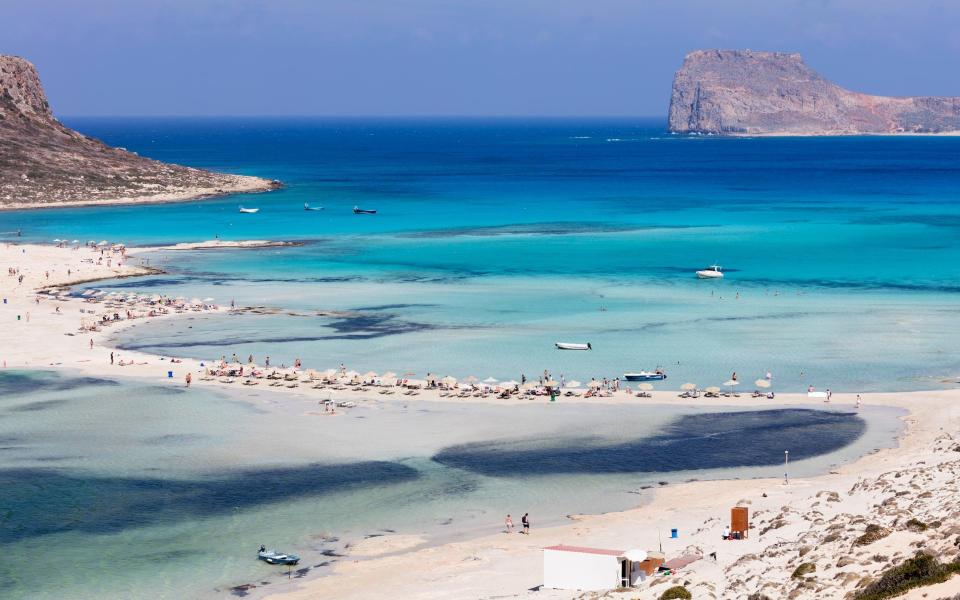
Rockstar Santorini’s sugar cube villages and world-famous caldera are likely to be popular this year, too, but if you want to get off the beaten track and escape the crowds, head next door to the all-too-often-overlooked Cyclades sister island of Naxos, where you will find family-friendly accommodation, low key traditional tavernas and near deserted beaches.
Ever since Mama Mia! was filmed there, the pine-tree-studded island of Skiathos, with its crystal clear seas and traditional fish tavernas, has been the Sporades’ crowd pleaser. It’s worth taking the ferry across sparkling waters to lesser-known neighbouring gems Skopelos and Alonissos, however, to discover a more authentic vibe.
Hotels
With a raft of new openings across the country, Greece is the word for great accommodation this summer.
Scattered over the world’s only inhabited volcanic crater, sultry Santorini is the place to find the wow factor. There are plenty of hotels clustered around the cobbled lanes of popular sunset spot, Oia, but if you want to get away from the tourist hordes while sticking close to the main sights, book a blissfully private pool villa at the new Canaves Oia Epitome (canaves.com), or stay in a stylish suite with jetted plunge pool at sea-view boutique haven Omma Santorini (ommasantorini.com).
Meanwhile, Crete’s most exciting new hotels include hip, adults-only Stella Island Luxury Resort (stellaisland.gr), where accommodation is in Maldivian-style overwater bungalows; Abaton Island (abaton.gr), a family-friendly spa resort near the lively town of Hersonissos; and Island Concept (theislandconcept.gr), a boutique retreat with a blissfully private beach overlooking Mirabello Bay.
Families
With taverns where your toddlers will be warmly welcomed, sandy beaches lapped by shallow bath-warm waters, a safe environment for little ones and plenty of activities for teenagers, Greece is arguably one of the world’s safest countries for families.
If your small people are thrilled by tales of monsters and mythical quests, Greece has plenty of child-friendly museums, including the recently revamped Acropolis museum where they have animated films and designated family activity packs. This year, the highlights of The Museum of Cycladic Art include clever cinematographic recreations of life in Athens in ancient times.
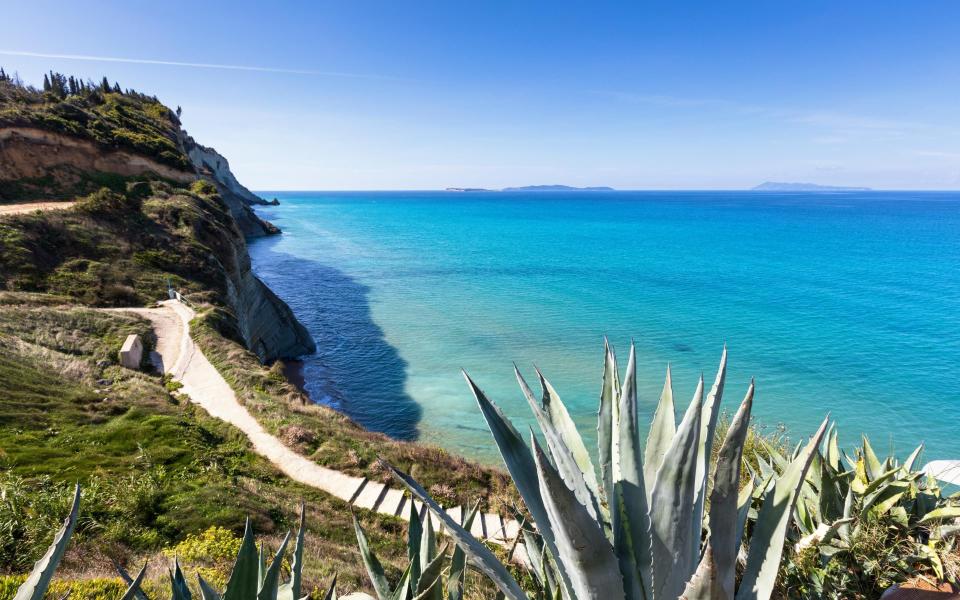
When it comes to the islands, both Crete, with its endless beaches, multiple activities and wide range of accommodation, and lovely, lush Corfu – the setting for The Durrells TV series – are both good choices. Whichever island you choose you are guaranteed to be welcomed warmly in local taverns, which often have designated (less expensive) children’s menus and will do their best to satisfy even the pickiest little eaters.
Couples
Greece’s picturesque white villages, laidback nightlife, spectacular seaside tavernas and scenic seascapes have long been a magnet for loving couples and loved-up honeymooners. Over the past few years a flurry of new adults-only resorts, from Crete’s boho-chic Domes Noruz (domesresorts.com) to hip hideaway Lesante Blu (lesanteblu.gr) on Zante are enhancing the romance in this stunning country whose vocabulary includes more than a dozen words for love.
Starry eyes are guaranteed on volcanic Santorini – to feed the flame, stay in Canaves Oia’s Master suite, where you can enjoy private dining with dramatic caldera views and then rollick in your blissfully private cave pool. Alternatively, beat a path to Opera Mansion (operasantorini.com), a sumptuous caldera-top hideaway with large indoor pool, private wine cellar and his and hers steam room.
Within easy reach of Athens, Hydra’s car-free streets and arty vibe are perfect for lovers of all ages. Mature romantics might prefer the more peaceful Cyclades Island, Folegandros, however, where a string of traditional taverns and sights such as the delightful clifftop Hora, are sure to seduce.
Local welcome
Ever since Zeus propounded the virtues of being hospitable to foreigners and guests, philoxenia – usually translated as “love of the stranger” – has been stamped into the Greek DNA.
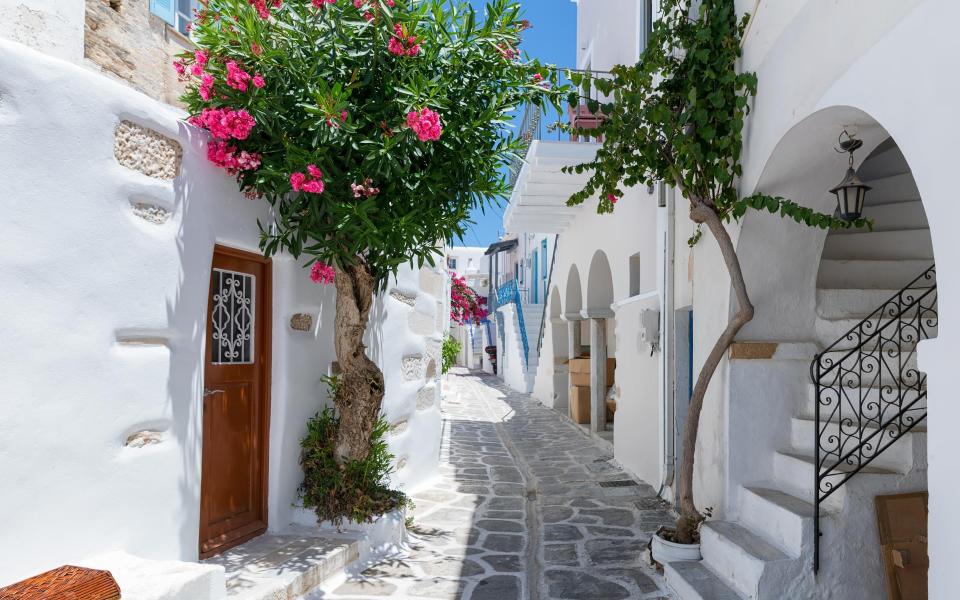
For a visitor, this age-old sense of hospitality translates in many concrete ways: stroll through the flower-bright streets of a Greek village with your children and you are sure to be offered a shiny pomegranate or a bunch of grapes; sit out at a Cretan kafenion and order raki and it will probably be served with complimentary meze snacks.
The British have a long history in Greece and, apart from a few grumbles about Elgin’s Marbles, you will be warmly welcomed. This is especially true in 2021, which marks the 200th anniversary of the Greek War of Independence, in which the leading figure of British Romanticism, Lord Byron (known in Greek as O Vyronas), sacrificed his life fighting for the Greek cause.

